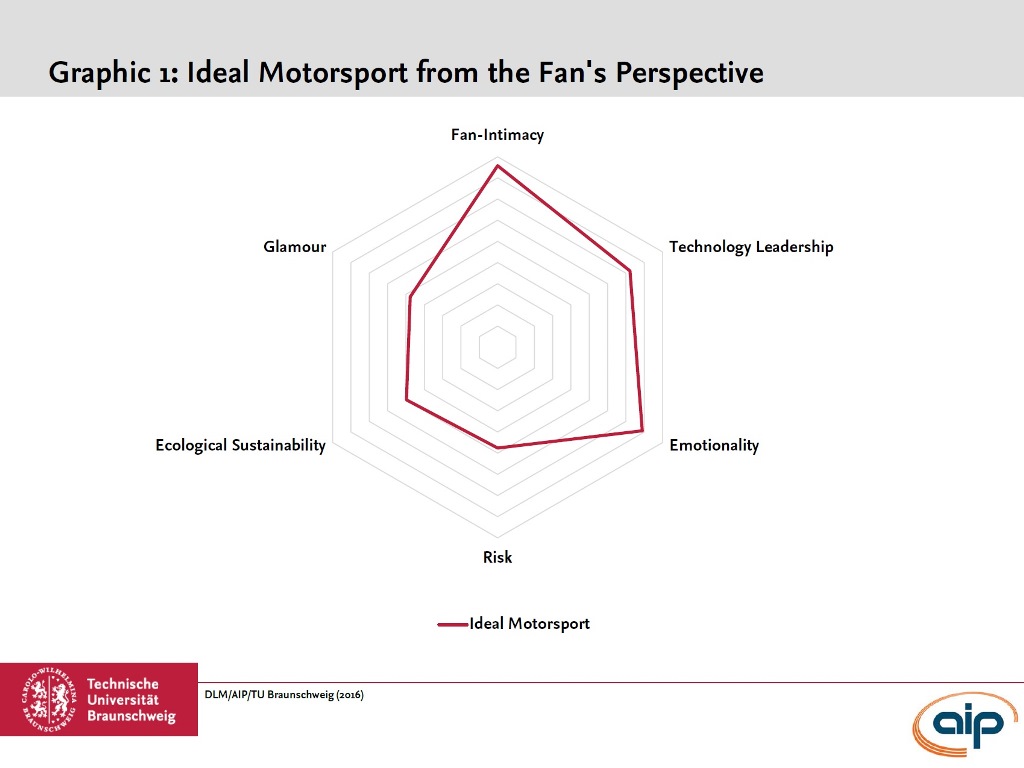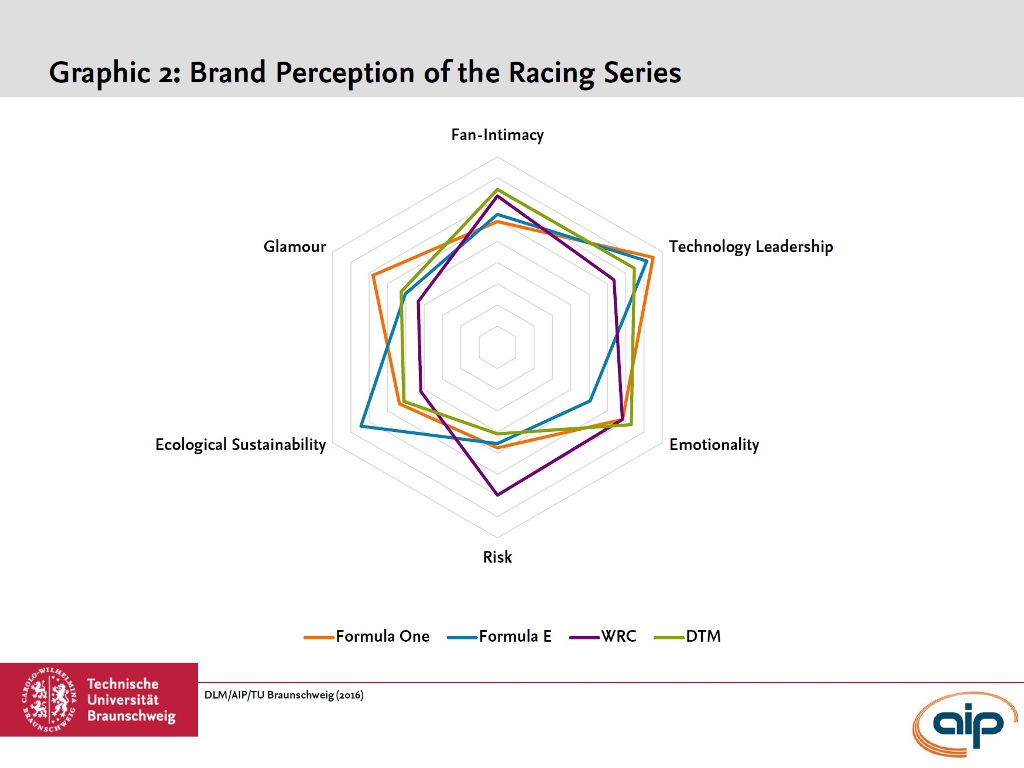Motorsport Study 2016: What Makes Motorsports Attractive? Brand Perception of Four Motorsport Racing Series Investigated
What makes motorsport attractive to its fans and can four of the leading racing series come up to expectations? These questions are addressed by business researchers of the Technische Universität Braunschweig. With an online survey interrogating over 300 respondents in Germany and England they identified six ideal brand characteristics and compared these with the brand perception of Formula One, Formula E, World Rally Championship, and DTM.
“Especially in motorsports, efforts to maintain the attractiveness of the sport for its fans are reflected by numerous rule changes. A key motivation for these activities is the necessity to attain awareness and image effects, which are important for sponsors”, explains Prof. David Woisetschläger, Chair of Service Management and member of the Automotive Research Centre Niedersachsen (NFF) at the TU Braunschweig.
According to the Motorsport Study 2016, fan-intimacy, technology leadership and emotionality are the three pivotal image dimensions, which are most important for motorsport fans. Less important are attributes like the extent of risk, the glamour, and the ecological sustainability of the motorsport.
By comparing the fan-ideal with the specific images of the investigated motorracing series, the authors come to the result that none of the four competitions fully reach the ideal of fan-intimacy. Especially the Formula One and Formula E do have bigger shortcomings in this regard, explains Christian Lucas. Although these two racing series obtain by far the best value with regards to the factor technology leadership. “The attractiveness of motorsport to its fans is still improvable when being compared to the worldwide number one football”, summarises co-author Lucas.
Lucas explains: “The momentum of improvement must originate from the teams. They can immediately profit from the improvement of the motorsports’ brand image.” Innovative technologies, in the case of the electro racing series Formula E in combination with the relatively high rated factor ecological sustainability, could be marketed more consequently, provided that the reach as well as involvement of the fans continues to develop positively. According to the authors, the emotionality of the motorsport series also demands to be enhanced further. Therefore the researchers see a great potential for Formula E to attract new target groups for motorsport and increase the financial attractiveness of the racing series.
About the Motorsport Study 2016
The Motorsport Study 2016 originated from a cooperation between the Chair of Services Management of the Institute of Automotive Management and Industrial Production of the TU Braunschweig and LUCAS Drive GmbH.
With the aim to depict the perception of the four big racing series in motorsports from a fans’ point of view, this study is based upon a non-representative survey of motorsport fans aged between 13 and 71 years which was conducted in Germany and England simulaneously. The recipients were recruited via online motor sports boards and social media groups. The inquiry took place in February 2016 by the use of a standardised written online questionnaire. In the context of the survey 310 participients were asked to give their personal assessments of relevant independent variables with regards to a self-choosen and a randomly assigned motorsport series (Formula One, Formula E, Deutsche Tourenwagen Masters, as well as World Rally Championship). These evaluations were matched against the picture of an ideal motorsport from a fans’ perspective.




